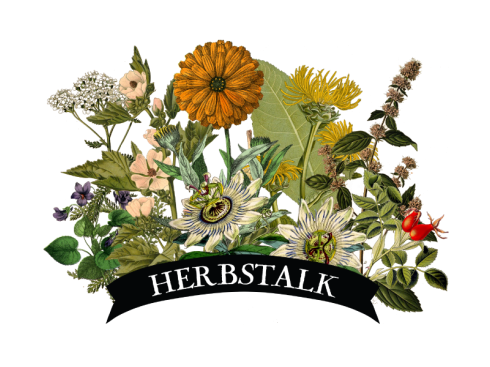|
Submitted by Nancy Anderson of Canis Major Herbals I love researching canine conditions and formulating remedies as much as the next herbalist, but I have found that in so many cases, we start with the foundation of diet, and the condition resolves. Recurring ear infections? Hot spots? Loose stool? Urinary tract infections? The root cause is usually a diet not appropriate for that dog. I have seen so many dogs whose humans don’t even know that the dog is not in a state of vital health. “Oh, that scratching? She’s always done that.” “The recurring ear infections? Isn’t that common with dogs?” “All that gas? The vet said it’s normal for a dog his age.” “The red toes? Yeah, she always bites them. Why, is that not good?” “Don’t all dogs get fleas?” Well, no, actually- it’s not a sign of optimal health. Let’s take a closer look at diet. Of course, your veterinarian should always be apprised of your dog’s condition and I’m not suggesting that you self-diagnose and/or self-treat medical conditions, but some of the most common reasons for taking a dog to the vet are actually diet-related and easily resolved if you know what you’re looking at. Sure, you can get antibiotics for icky ears or steroids for itchy skin, but drugs prescribed to correct a symptom will often suppress the symptom by driving the imbalance deeper into the body to manifest later in a different or more advanced condition. Say your dog has recurring urinary tract infections. Yes, antibiotics will take care of it… each time. An overly-medicated or overly-vaccinated dog will often have a weakened immune system, thus continuing the cycle. Why is your dog having recurring urinary tract infections, in the first place? Wouldn’t you rather get to the underlying cause so that the condition can be resolved once and for all, and your dog can be back in a state of balanced health? Food sensitivity is one issue that we’re seeing a lot more of, these days. There are different theories on the reasons for this, but it does seem that the best practice to avoid it is to rotate foods. Part of the nutritional requirements for dogs is an array of amino acid profiles – those found in animal meats. Although dogs have been domesticated for thousands of years, their nutritional needs in this regard have remained the same as any wild canid who preys upon different animals. So, by rotating meats, you are providing that wider nutritional profile, thus perhaps reducing your dog’s likelihood of developing a food sensitivity. But why stop at meats? Rotate grains, vegetables, fruits, and herbs! If you feed a good quality dry food, rotate formulas and even brands on a regular basis. Different companies have different recipes and ingredients, so offering that diversity is your dog’s immune system’s best aid. Depending on your dog’s constitution and tolerance, add meats and vegetables and fruits in season. If you feed raw, start rotating ingredients (if you don’t already). And, of course, add herbs. I can’t believe it’s taken me this long to even get to herbs! (I do ramble when it comes to food.) Keep a rotating supply in the pantry or cabinet, and add according to the season or your dog’s condition(s). Make an infusion the same way that you would make it for yourself, using less for smaller dogs. Once cooled, dump all contents (herbs and all) into the bowl of food. Another method I use is to throw the vegetables, roots, and herbs all together in a pot and simmer for a bit. With a big enough pot, I then have plenty for the next few days. So, which herbs? Which vegetables? Which roots? Which fruits? One system that I like is the Chinese 5-Element System because it correlates the seasons with food and organ systems. So, if we start in the Spring, we’re looking at the Liver/Gall Bladder, and the foods and herbs that support that organ system, such as chicken, rabbit, eggs, millet, brown rice, quinoa, amaranth, beets, radishes, asparagus, kale, collard greens, leeks, carrots, peaches, plums, raspberries, Barberry, Burdock, Dandelion root, Greater Celandine, Horseradish, Milk Thistle, Sassafras, Scullcap, Yellow Dock. Moving into Summer, we’re going to rotate into the foods and herbs appropriate for that season/system/element, and so forth. All organ systems rely on the others and so, through the seasons, we’re supporting and cleansing each organ systems as we go through the body in order to keep the whole functioning well. Talk about preventive care! Throw in a good dose of happy exercise and a little positive training or working, and your dog will flourish! Isn’t that what we’re after? Nancy was certified as an herbalist in 2005 by Misty Meadows Herbal Center in Lee, NH, after studying herbs and other holistic modalities on her own for many years. Going into her training, she knew that her focus was in treating dogs, and worked to translate health conditions and herbal applications from human to canine. Based in Somerville, Nancy offers consults for pets, as well as trail hikes for dogs and herb walks along the bike path. She will be teaching The Elements of Canine Health on Sunday, June 9th.
|
Archives
November 2023
Categories
All
|
Join the Newsletter!
Receive news about future Herbstalk events
Thank you!
You have successfully joined our subscriber list.
Copyright © Herbstalk 2024

 RSS Feed
RSS Feed